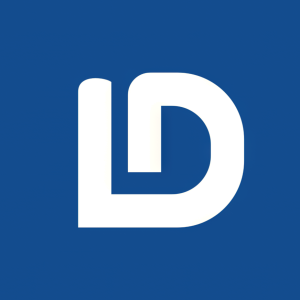Lucid Diagnostics Announces Positive Data from ENVET-BE Clinical Utility Study of EsoGuard® Esophageal Precancer Testing
Rhea-AI Summary
Lucid Diagnostics (Nasdaq: LUCD) has released new real-world data from its ENVET-BE study, demonstrating the clinical utility of the EsoGuard® Esophageal DNA test as a non-invasive triage tool for detecting esophageal precancer and cancer. The study showed that patients triaged to invasive upper endoscopy (EGD) following a positive EsoGuard test had a 2.4-fold increase in positive yield compared to screening EGD alone in at-risk patients.
Key findings include:
- EGD confirmed Barrett's Esophagus (BE) in 50 out of 199 patients who received a positive EsoGuard result
- Post-triage EGD yield was 25%, compared to the expected 11% yield of EGD as a standalone screening tool
- Results support the use of EsoGuard as an alternative to EGD for esophageal precancer testing, potentially increasing compliance with screening guidelines and reducing esophageal cancer deaths
Positive
- EsoGuard test demonstrated a 2.4-fold increase in positive yield for detecting esophageal precancer compared to standard screening
- 25% post-triage EGD yield, significantly higher than the expected 11% yield of EGD alone
- Results support the use of EsoGuard as a non-invasive alternative to EGD for esophageal precancer testing
- Potential to increase compliance with esophageal precancer screening guidelines
Negative
- None.
News Market Reaction
On the day this news was published, LUCD gained 3.13%, reflecting a moderate positive market reaction.
Data tracked by StockTitan Argus on the day of publication.
Real-world data confirms utility of EsoGuard as a non-invasive triage tool to significantly increase positive yield of invasive upper endoscopy
"Up to
EGD confirmed a BE diagnosis in 50 of the 199 patients in a real-world commercial setting who underwent clinically directed EsoGuard testing and received a positive EsoGuard result. This represents a post-triage EGD yield of
"The ENVET-BE study demonstrates that triaging at-risk patients with EsoGuard significantly increases the yield of EGD, which should lead to more efficient use of endoscopy resources while improving early detection of esophageal precancer," said Victoria T. Lee, M.D., Lucid's Chief Medical Officer. "These results support published professional society guidelines which include non-endoscopic biomarker tests, such as EsoGuard, as an acceptable alternative to EGD for esophageal precancer testing. Using EsoGuard to triage patients to EGD has the potential to increase compliance with esophageal precancer screening guidelines and reduce esophageal cancer deaths."
About Lucid Diagnostics
Lucid Diagnostics Inc. is a commercial-stage, cancer prevention medical diagnostics company, and subsidiary of PAVmed Inc. (Nasdaq: PAVM). Lucid is focused on the millions of patients with gastroesophageal reflux disease (GERD), also known as chronic heartburn, who are at risk of developing esophageal precancer and cancer. Lucid's EsoGuard® Esophageal DNA Test, performed on samples collected in a brief, noninvasive office procedure with its EsoCheck® Esophageal Cell Collection Device, represent the first and only commercially available tools designed with the goal of preventing cancer and cancer deaths through widespread, early detection of esophageal precancer in at-risk patients.
For more information, please visit www.luciddx.com and for more information about its parent company PAVmed, please visit www.pavmed.com.
Forward-Looking Statements
This press release includes forward-looking statements that involve risk and uncertainties. Forward-looking statements are any statements that are not historical facts. Such forward-looking statements, which are based upon the current beliefs and expectations of Lucid's management, are subject to risks and uncertainties, which could cause actual results to differ from the forward-looking statements. Risks and uncertainties that may cause such differences include, among other things, volatility in the price of Lucid's common stock; general economic and market conditions; the uncertainties inherent in research and development, including the cost and time required to advance Lucid's products to regulatory submission; whether regulatory authorities will be satisfied with the design of and results from Lucid's clinical and preclinical studies; whether and when Lucid's products are cleared by regulatory authorities; market acceptance of Lucid's products once cleared and commercialized; Lucid's ability to raise additional funding as needed; and other competitive developments. In addition, Lucid continues to monitor the COVID-19 pandemic and the pandemic's impact on Lucid's businesses. These factors are difficult or impossible to predict accurately and many of them are beyond Lucid's control. In addition, new risks and uncertainties may arise from time to time and are difficult to predict. For a further list and description of these and other important risks and uncertainties that may affect Lucid's future operations, see Part I, Item 1A, "Risk Factors," in Lucid's most recent Annual Report on Form 10-K filed with the Securities and Exchange Commission, as the same may be updated in Part II, Item 1A, "Risk Factors" in any Quarterly Report on Form 10-Q filed by Lucid Diagnostics after its most recent Annual Report. Lucid disclaims any intention or obligation to publicly update or revise any forward-looking statement to reflect any change in its expectations or in events, conditions, or circumstances on which those expectations may be based, or that may affect the likelihood that actual results will differ from those contained in the forward-looking statements.
![]() View original content to download multimedia:https://www.prnewswire.com/news-releases/lucid-diagnostics-announces-positive-data-from-envet-be-clinical-utility-study-of-esoguard-esophageal-precancer-testing-302215476.html
View original content to download multimedia:https://www.prnewswire.com/news-releases/lucid-diagnostics-announces-positive-data-from-envet-be-clinical-utility-study-of-esoguard-esophageal-precancer-testing-302215476.html
SOURCE Lucid Diagnostics








